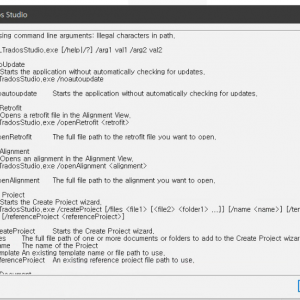
동사의 활용 계속
2a 동사의 활용에는 1장에서 본 제1형 활용 동사 외에 4가지가 더 있습니다. 라틴어는 복잡하여 익히기 고약하지만 규칙적인 언어입니다.
제1형 활용 동사인 amo에서 관찰한 변화 규칙(어간+핵심 모음+인칭 어미)이 그 밖의 모든 동사의 활용에 똑같이 적용됩니다. 유일하게 변하는 것은 핵심 모음입니다. 기억해 둘 것은 2개의 새로운 모음 -e- 및 -i-입니다.
2b 제2형 활용 동사: mone–o, I warn, advise. 어간 mon-, 핵심 모음 -e-, 인칭별 활용: mon-e-o, I warn; mon-e-s, you warn; mon-e-t, he/she/it warns, mon-e-mus, we warn, mon-e-tis, you warn (복수), mon-e-nt, they warn. 부정사 mon-e-re, to warn
제2형 활용의 대표적인 동사는 mon-eo + (부정사) mon-ere입니다.
어휘
2c 다음은 또 다른 제2형 활용 동사입니다. 노트해 두십시오. Habeo I have, iubeo I order, teneo I hold, take, video I see. 노트 요령 hab-eo 2v hab-ere I have.
추가로 노트해 둘 단어입니다. cur why?, quid what?, quis who?
연습 문제
- 다음을 영어로 번역하시오: non habes, semper monent, quid iubetis?, tenes, videre, monemus, nunc habet, cur equitare amatis?, quis portat?, semper iubes, nunc non habent.
- 다음을 라틴어로 번역하시오: you (s) warn, she sees, they love to take, we now have, they always hurry, who orders?, what do they advise?, you (pl) now question, to order, why does he take?
해답
- You do not have, they always advise, what do you order?, you hold, to see, we warn, now he has, why do you love to ride?, who carries?, you always order, now they do not have.
- mones, videt, tenere amant, nunc habemus, semper festinant, quis iubet?, quid monent?, nunc interrogatis, iubere, cur tenet?
2d 제3형 활용 동사, reg-o I rule. 어간 reg-, 핵심 모음 -i: reg-o, reg-i-s, reg-i-t, reg-i-mus, reg-i-tis, reg-unt. 부정사 reg-ere to rule. 여기서 유일하게 새로운 것은 3pl 어미인 -u-nt입니다.
제3형 활용의 대표적인 동사는 reg-o + (부정사) reg-ere입니다. 제2형 활용 동사인 2b의 mon-eo, mon-ere와 대조해 보십시오.
어휘
2e 다음은 또 다른 제3형 활용 동사입니다. 노트해 두십시오. apprehendo I seize, dico I say, speak, duco I lead, mitto I send, traho I drag, vinco I conquer. 노트 요령 dic-o 3v dic-ere I say.
연습 문제
- 영어로 번역하시오: quid dicis?, cur mittunt?, semper trahit, ducere amamus, nunc vincimus et apprehendimus, quis dicit?, mittimus, ducunt, trahitis, non ducit sed mittit.
- 라틴어로 번역하시오: They always conquer, now we speak, what does he say?, we lead, they love to say, he seizes, you (pl) send.
해답
- What do you say?, why do they send?, he always drags, we love to lead, now we conquer and seize, who speaks?, we send, they lead, you drag, he does not lead but sends.
- semper vincunt, nunc dicimus, quid dicit?, ducimus, dicere amant, apprehendit, mittitis.

2f 제4형 활용 동사 audio I hear, listen. 어간 aud-, 핵심 모음 -i-: aud-i-o, aud-i-s, aud-i-t, aud-i-mus, aud-i-tis, aud-i-unt. 부정사: aud-i-re to hear. 3pl 어미가 -i-unt인 것에 유의하십시오. 제4형 활용의 대표적인 동사는 aud-io + (부정사) aud-ire입니다.
어휘
2g 다음은 또 다른 제4형 활용 동사입니다. 노트해 두십시오. nescio I do not know, scio I know, sentio I feel, venio I come. 노트 요령 nesc-io 4v nesc-ire I do not know.
연습 문제
- 영어로 번역하시오: quid sentis? veniunt, nescimus, audire amo, sentire, nunc scit, quis venit?, cur nescitis?, nescio sed sentio, hic venimus, quis nescit?
- 라틴어로 번역하시오: We come, you (s) know, we feel, now they do not know, he knows but he does not come, who is listening? to feel, now they listen but they do not always know, we love to know.
해답
- What do you feel?, they come, we do not know, I love to hear, to feel, now he knows, who is coming?, why do you not know?, I do not know but I feel, here we come, who does not know?
- venimus, scis, sentimus, nunc nesciunt, scit sed non venit, quis audit?, sentire, nunc audiunt sed non semper sciunt, scire amamus.
2h 제5형 활용 동사, capio I capture. 어근 cap-, 핵심 모음 -i-: cap-i-o, cap-i-s, cap-i-t, cap-i-mus, cap-i-tis, cap-i-unt. 부정사: cap-ere to capture.
제5형 활용의 대표적인 동사는 capio + (부정사) cap-ere입니다. 제4형 활용 동사인 2f의 audio audire와 대조 비교해 보십시오.
어휘
2i 다음은 또 다른 제5형 활용 동사입니다. 노트해 두십시오. facio I make, do. 노트 요령 fac-io 5v fac-ere I make, do.
연습 문제
- 영어로 번역하십시오: non facimus, semper capit, quid hic facitis?, capere amat, faciunt, nunc quid facis?, cur auditis?, ducimus, quis regit?, capiunt.
- 라틴어로 번역하십시오: I do, to do, I feel, to feel, I capture, to capture, I see, to see, I rule, to rule, I carry, to carry.
해답
- We do not make, he always captures, what are you doing here?, he loves to capture, they make, now what are you doing?, why do you listen?, we lead, who rules?, they capture.
- facio, facere, sentio, sentire, capio, capere, video, videre, rego, regere, porto, portare.
동사의 각 활용 유형별로 표를 만들어 시각적으로 익히는 것도 도움이 됩니다. 여러분 수고하셨습니다.








